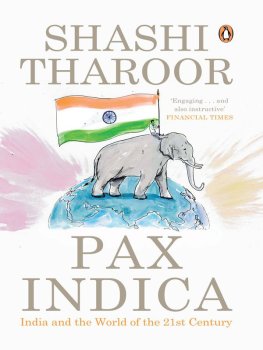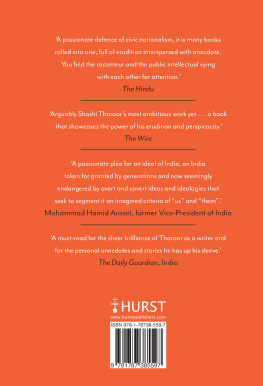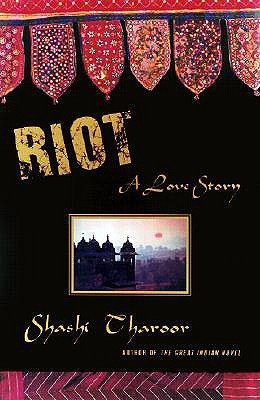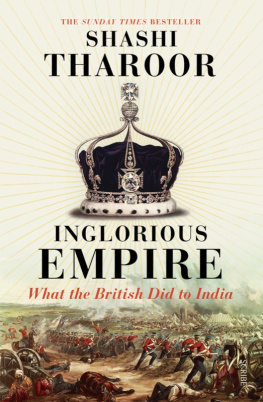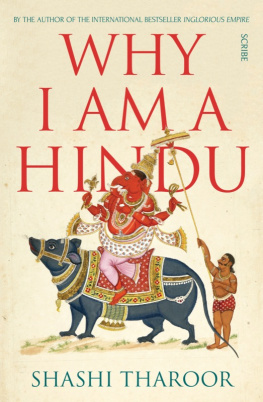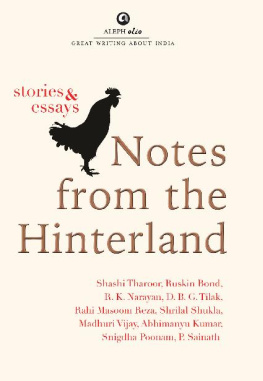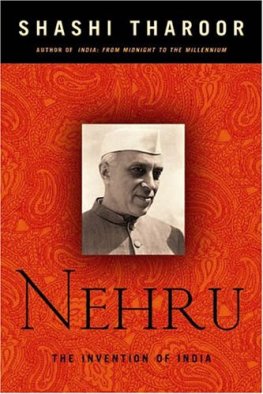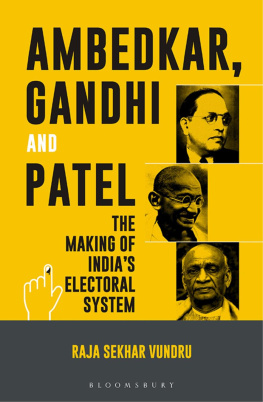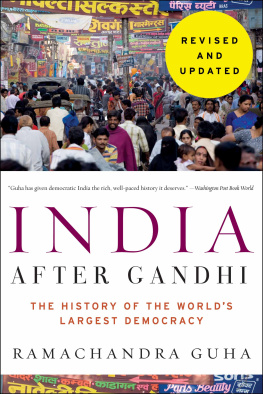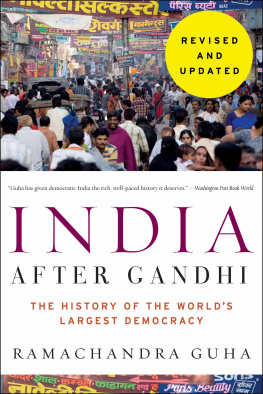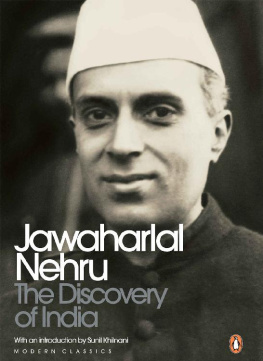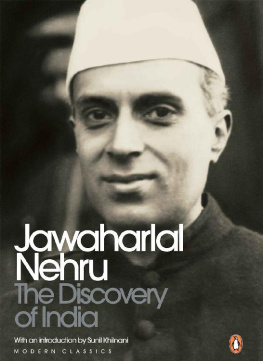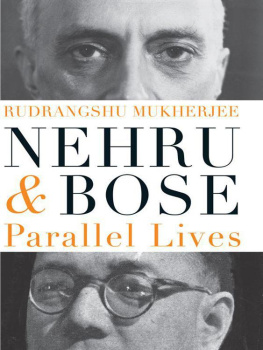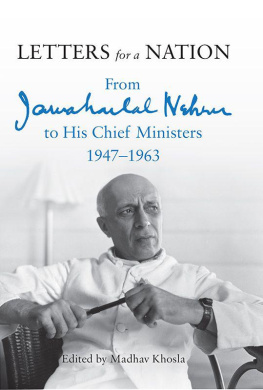
Also by Shashi Tharoor
India: From Midnight to the Millennium
The Five Dollar Smile and Other Stories
The Elephant, the Tiger, and the Cell Phone
Bookless in Baghdad
The Great Indian Novel
Show Business
Riot
NEHRU
THE INVENTION OF INDIA
SHASHI THAROOR

ARCADE PUBLISHING NEW YORK
Copyright 2003, 2011 by Shashi Tharoor
All Rights Reserved. No part of this book may be reproduced in any
manner without the express written consent of the publisher, except
in the case of brief excerpts in critical reviews or articles.
All inquiries should be addressed to Arcade Publishing, 307 West 36th Street,
11th Floor, New York, NY 10018.
Arcade Publishing books may be purchased in bulk at special discounts for sales
promotion, corporate gifts, fund-raising, or educational purposes. Special
editions can also be created to specifications. For details, contact the Special
Sales Department, Arcade Publishing, 307 West 36th Street, 11th Floor,
New York, NY 10018 or .
Arcade Publishing is a registered trademark of Skyhorse Publishing, Inc., a Delaware corporation.
Visit our website at www.arcadepub.com.
The Pandit copyright 1962 by Ogden Nash.
Reprinted by permission of Curtis Brown, Ltd.
Excerpt from Stopping by Woods on a Snowy Evening from The
Poetry of Robert Frost, edited by Edward Connery Lathem. Copyright
1923, 1969 by Henry Holt and Company, copyright 1954 by
Robert Frost. Reprinted by permission of Henry Holt and Company, LLC.
10 9 8 7 6 5 4 3 2 1
Library of Congress Cataloging-in-Publication Data is available on file.
ISBN: 978-1-61145-411-6
Printed in the United States of America
To Kofi Annan,
who, as a young man in Ghana,
admired Nehru,
this book is dedicated
with respect and affection
Contents
Preface
F or the first seventeen years of Indias independence, the paradox-ridden Jawaharlal Nehru a moody, idealist intellectual who felt an almost mystical empathy with the toiling peasant masses; an aristocrat, accustomed to privilege, who had passionate socialist convictions; an Anglicized product of Harrow and Cambridge who spent almost ten years in British jails; an agnostic radical who became an unlikely protg of the saintly Mahatma Gandhi was India. Upon the Mahatmas assassination, Nehru became the keeper of the national flame, the most visible embodiment of Indias struggle for freedom. Incorruptible, visionary, ecumenical, a politician above politics, Nehrus stature was so great that the country he led seemed inconceivable without him. A year before his death a leading American journalist published a book entitled After Nehru, Who? The unspoken question around the world was: after Nehru, what?
Today, nearly four decades after his death, we have something of an answer to the latter question. As an India still seemingly clad in the trappings of Nehruvianism steps out into the twenty-first century, little of Jawaharlal Nehrus legacy appears intact. India has moved away from much of it, and so (in different ways) has the rest of the developing world for which Nehruvianism once spoke. As India nears the completion of the sixth decade of its independence from the British Raj, a transformation still incomplete has taken place that, in its essentials, has changed the basic Nehruvian assumptions of postcolonial nationhood.
In this short biography, I have sought to examine this great figure of twentieth-century nationalism from the vantage point of the beginning of the twenty-first. Jawaharlal Nehrus life is a fascinating story in its own right, and I have tried to tell it whole, because the privileged child, the unremarkable youth, the posturing young nationalist, and the heroic fighter for independence are all inextricable from the unchallengeable prime minister and revered global statesman. A concluding chapter critically analyzes the principal pillars of Nehrus legacy to India democratic institution-building, staunch pan- Indian secularism, socialist economics at home, and a foreign policy of nonalignment all of which were integral to a vision of Indianness that is fundamentally contested today.
Nehru: The Invention of India is not a scholarly work; it is based on no new research into previously undiscovered archives; it is not footnoted, though a Note on Sources and a Select Bibliography will guide the curious toward further reading. It is, instead, a reinterpretation both of an extraordinary life and career and of the inheritance it left behind for every Indian. The very term Indian was imbued with such meaning by Nehru that it is impossible to use it without acknowledging a debt: our passports incarnate his ideals. Where those ideals came from, whether they were brought to fulfillment by their own progenitor, and to what degree they remain viable today are among the themes of this book. I started it as divided between admiration and criticism as I finished it; but the more I delved into Nehrus life, it was the admiration which deepened.
Jawaharlal Nehrus impact on India is too great not to be reexamined periodically. As an Indian writer, I am conscious that his legacy is ours, whether we agree with everything he stood for or not. What India is today, both for good and for ill, we owe in great measure to one man. This is his story.
A Note on Indian
Political Movements
T his book mentions a number of Indian political parties and movements of importance to understanding Jawaharlal Nehrus life and times and appreciating his legacy.
The Indian National Congress was founded in 1885 by a liberal Scotsman, Allan Octavian Hume, to provide a forum for the articulation of an Indian viewpoint on issues of the countrys governance and political development. The Congress evolved into the countrys premier political party (whose annual sessions, in different venues around India, attracted ever-greater attendance and attention). Its leadership was initially drawn from the educated professional classes, and its presidents, who were elected annually, belonged to various faiths, with Hindus, Muslims, Christians, and Parsis among the first two dozen presidents. Around the cusp of the century a schism developed within the Congress between the Extremists, led by Tilak, and the Moderates, led by Gokhale the former seeking more radical action to overthrow the British, the latter pursuing their goals through constitutional means while seeking fundamental reforms leading to self-government. This schism ended around the time of the First World War.
The advent of Mahatma Gandhi, who returned to India from a long sojourn in South Africa in 1916, transformed the Congress from an elite debating society passing largely ineffectual resolutions into a mass movement for complete independence. In order to engage the Muslim masses and to promote Hindu-Muslim unity, Gandhi committed the party to supporting the Khilafat movement, which organized anti-British demonstrations around India clamoring for the restoration of the Caliphate in the defeated Ottoman Turkey. The victory of the secular republican Kemal Ataturk in the Turkish civil war rendered that cause otiose, but the campaign demonstrated both the potential and the limitations of popular mobilization cutting across communal lines. During the 1920s the major division in the Congress Party was between those advocating civil disobedience and noncooperation with the British and those who, calling themselves
Next page

